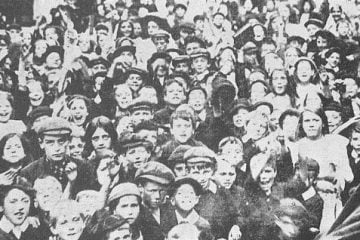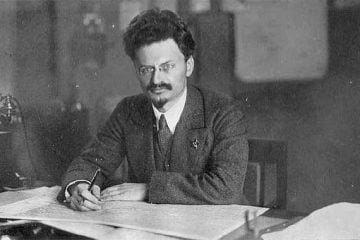Among the most formidable civilisations that early capitalism had to confront in its period of ascent was China. In The Communist Manifesto, Marx listed among the key moments of capitalist development not only the conquest of the Americas and the transatlantic slave trade, but also the opening of new markets in the Indian subcontinent and East Asia. The horrors which attended capitalist domination in Asia were scarcely less than those seen in the Atlantic.
China under the Qing dynasty (which began its rule in 1644) was a confident, aggressive, sophisticated, but also brutal class society, dominated by a succession of emperors supported by a large and effective imperial bureaucracy. Qing Chi- na’s vast population, estimated as high as 400 million, was, like the rest of the world, overwhelmingly rural. Its extraor- dinary size was built in part by conquest, focused on peoples in the west: Mongols, Tibetans, and Muslims.
Qing China was also a commercial powerhouse, trading in high-quality porcelain, silk, and tea. For much of the eighteenth century, the Chinese had a favourable trade balance with Europe, a region which in centuries past had languished as something of a backwater in global terms. Nevertheless, new social relations and productive forces were unleashed in Europe which would bring disaster to the civilisations of Asia. The logic of the new capitalist economy made aggressive international expansion – of imperial territories and commercial networks – essential.
The first major steps toward Europe- an domination in Asia were on the Indian subcontinent, where the British East India Company (EIC) conquered Bengal and established themselves as a leading naval power. In the territories under their control, the British reorganised production to suit the needs of the home market. The consequences were catastrophic for the local population: 10 million died in the Bengal famine of 1770.
After establishing a grip on the sub-continent, the EIC turned its attention to India’s mighty northern neighbour. The British needed to redress a trade deficit which saw huge amounts of wealth flow to China, as the appetites of the British upper and middle classes for Chinese goods proved insatiable. To do so, the economy of British Bengal was increasingly organised around the production of opium, and British smugglers imported the drug in growing quantities into China.
Opium had a devastating impact on Chinese consumers and wider society. Alongside opium, the British sent anoth- er export to China: Christian missionaries sent to undermine the Qing regime’s ideological support in Confucianism by preaching faith in Jesus.
The British were not alone in participating in the opium trade or in sending Christian missionaries, but they came to dominate the opium market in the early and mid-nineteenth century. In response, the Chinese state escalated efforts to stop it. In 1839, the High Commissioner, Lin Tse-hsu, sent a letter to Queen Victoria asking her to put a stop to the trade. The letter was ignored. Soon after, hostilities opened. British naval superiority led to a relatively swift defeat of the Chinese Empire in 1842. Nevertheless, the Chinese remained powerful enough that they could chafe threateningly against British control.
A second, larger and more decisive conflict broke out in 1856. In this, the British partnered with the French to open the whole of China to European capital. The war unfolded in two phases, being interrupted in 1857 by the massive Indian Rebellion, which threatened British control of the subcontinent.
Finally, in 1860, the Chinese were forced to sue for peace when the Euro- pean forces captured the Forbidden City in Beijing. There, the Chinese Emperor ratified an agreement that rendered the once-mighty Qing imperial state into a ward of European rule. The British were granted access to the lucrative trade in indentured labourers (sometimes called the Pacific Passage); extracted a large indemnity (with the French); forced the opening of a trade port in Tianjin (hence, British control of Hong Kong until 1997); ensured freedom of religion in China so that Christian missionaries could freely convert the emperor’s subjects; and, of course, won the legalisation of the opium trade.
Once we move past the propaganda of the capitalist class about their histor- ic role in the betterment of human life, we discover then that among the first significant capitalist trades were the trafficking of narcotics and people. We discover, too, that the reality of “free trade” has been the ruthless, militarised imposition of unequal trade terms on foreign peoples.
Today, the working-class in China is the largest in the world, and its organisation and militancy are on the rise. Once it really begins to move it will shake the foundations of global capitalism. For workers in Britain, the most important contribution we can make to the repairing of this historic crime is to take up the same fight and expel the imperialists at home, whose existence as a class relies still on unimaginable barbarism.




0 Comments